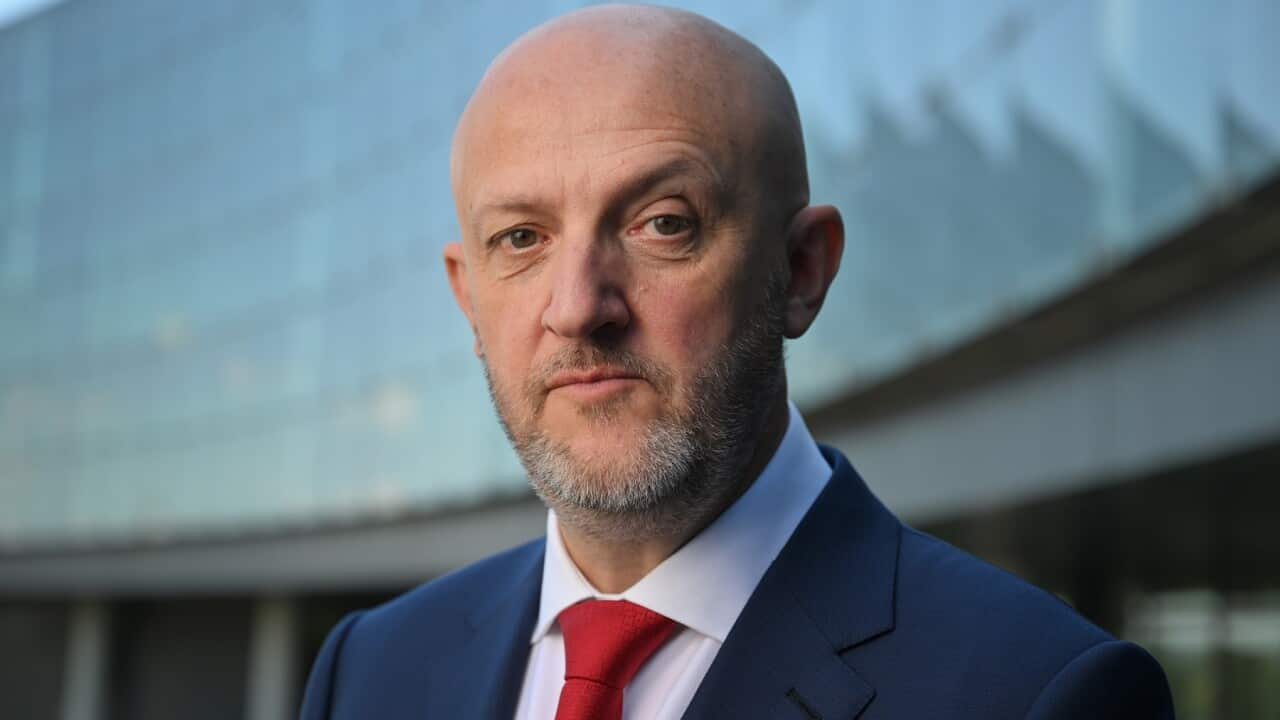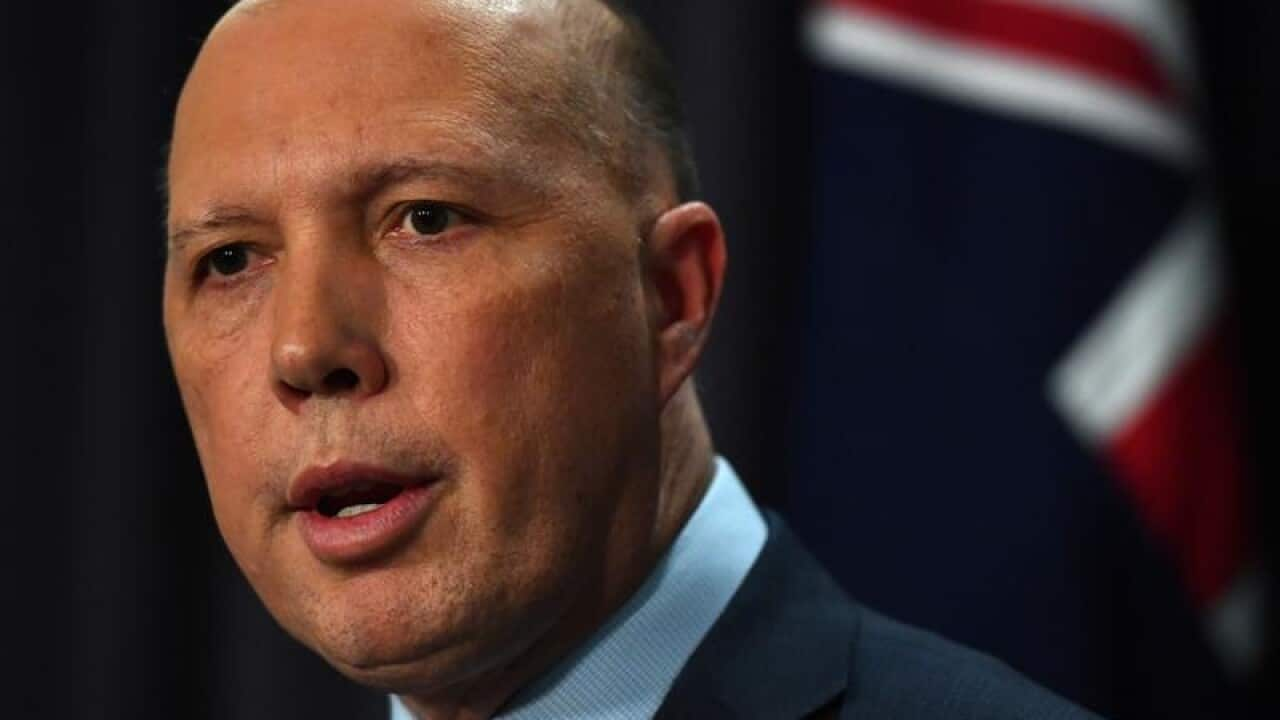Key Points
- Mike Burgess, the head of Australia's domestic spy agency, is set to deliver a speech at the National Press Club.
- He is expected to warn that Australian members of nationalist extremist networks are using encrypted messaging apps.
- Burgess will also warn artificial intelligence could "increase espionage" and "make radicalisation easier and faster".
Australia's domestic spy agency says it is investigating a number of nationalists and "racist extremists" who are discussing how to provoke a "race war" and sharing tips for making homemade weapons on encrypted messaging apps.
The Australian Security Intelligence Organisation (ASIO) director-general of security Mike Burgess has also warned that Australia's ability to investigate extremist networks is being "seriously compromised" by encrypted chat platforms.
Burgess is expected to make those comments when discussing the dangers of artificial intelligence and end-to-end encryption programs such as WhatsApp and Signal in a speech to the National Press Club on Wednesday.
ASIO monitoring 'racist extremists'
End-to-end encryption stops data from being read or secretly modified while being transferred between devices.
It has become extremely popular in recent years, including among politicians. Last year, Meta's Messenger platform announced it would introduce end-to-encryption by default for personal messages and calls.
In his speech, excerpts of which were seen by SBS News, Burgess will note that technology companies are expanding their use of end-to-end encryption, and the threat from these services is not "hypothetical".
"ASIO is investigating a number of Australians who belong to a nationalist and racist extremist network," he is expected to say.
"They use an encrypted chat platform to communicate with offshore extremists, sharing vile propaganda, posting tips about homemade weapons and discussing how to provoke a race war.
"The chatroom is encrypted, so ASIO's ability to investigate is seriously compromised."

Mike Burgess says he is asking technology companies to uphold Australia's existing encryption laws. Source: AAP / Mick Tsikas
"Having lawful and targeted access to extremist communications would be much more effective and efficient. It would give us real time visibility of their activities."
[Australians] use an encrypted chat platform to communicate with offshore extremists, sharing vile propaganda, posting tips about homemade weapons and discussing how to provoke a race warASIO director-general of security Mike Burgess
Burgess said technology should not be above the law, and companies should help authorities uphold existing laws.
Australia in 2018 forcing tech companies to help law enforcement agencies access messages and even to create backdoors to get around encryption of their products, but so far this seems to have been done on a voluntary basis, without issuing a compulsory notice.
Burgess says ASIO is not looking for new laws or powers but without the help of the tech companies, encryption is unaccountable.
"I am asking the tech companies to do more. I'm asking them to give effect to our existing powers and to uphold existing laws," he will say.
"Privacy is important, but not absolute.
"If the threat, evidence, safeguards and oversight are strong enough for us to obtain a warrant, then they should be strong enough for the companies to help us give effect to that warrant. To make encryption accountable."
Burgess will also warn about artificial intelligence and expectations that it will facilitate a "step change in adversary capability".
"We are aware of offshore extremists already asking a commercially available AI program for advice on building weapons and attack planning," he will say.
"AI is expected to increase espionage, foreign interference (particularly through disinformation) and radicalisation.
"The internet is (already) … the world's most potent incubator of extremism. AI is likely to make radicalisation easier and faster."










